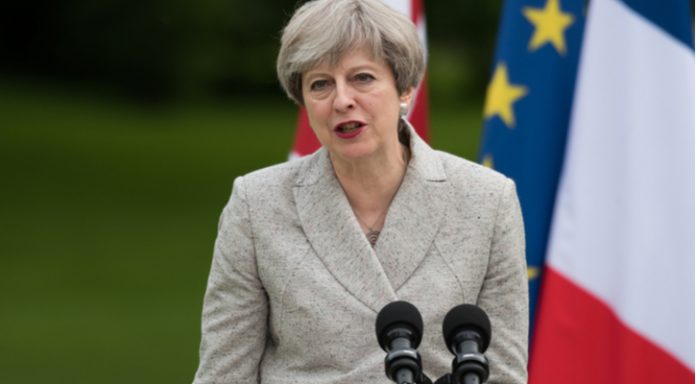The pound tumbled against the euro for a second straight session on Thursday, a poor UK data and Brexit nerves weighed on sentiment. The pound euro exchange rate tumbled from a high of €1.1315 to a low of €1.1247.
| What do these figures mean? |
|---|
|
When measuring the value of a pair of currencies, one set equals 1 unit and the other shows the current equivalent. As the market moves, the amount will vary from minute to minute. For example, it could be written: 1 GBP = 1.13990 EUR Here, £1 is equivalent to approximately €1.14. This specifically measures the pound’s worth against the euro. If the euro amount increases in this pairing, it’s positive for the pound. Or, if you were looking at it the other way around: 1 EUR = 0.87271 GBP In this example, €1 is equivalent to approximately £0.87. This measures the euro’s worth versus the British pound. If the sterling number gets larger, it’s good news for the euro. |
Poor UK data in addition to Brexit uncertainty pushed sterling lower across the board. Data on Thursday showed that UK manufacturing pulled back to an 8-month low in February, slipping from 55.3 in January to 55.2 in February. Even late last year manufacturing was considered a bright spot for the UK economy, however this year a weaker trend has been forming, which is worrying investors.
| Why does poor economic data drag on a country’s currency? |
|---|
| Slowing economic indicators point to a slowing economy. Weak economies have weaker currencies because institutions look to reduce investments in countries where growth prospects are low and then transfer money to countries with higher growth prospects. These institutions sell out of their investment and the local currency, thus increasing supply of the currency and pushing down the money’s worth. So, when a country or region has poor economic news, the value of the currency tends to fall. |
The pound suffered heavy losses as the post Brexit transition period was once again thrown into doubt by EU Chief Negotiator Michel Barnier. Barnier said that businesses won’t have absolute certainty about the Brexit transition until the end of negotiations early next year. This essentially leaves very little time for business to prepare for either eventuality and is therefore bad news for the economy. Should no transition deal be reached then Britain will experience a hard Brexit which could be harsh on the UK economy.
| Why is a “soft” Brexit better for sterling than a “hard” Brexit? |
|---|
| A soft Brexit implies anything less than UK’s complete withdrawal from the EU. For example, it could mean the UK retains some form of membership to the European Union single market in exchange for some free movement of people, i.e. immigration. This is considered more positive than a “hard” Brexit, which is a full severance from the EU. The reason “soft” is considered more pound-friendly is because the economic impact would be lower. If there is less negative impact on the economy, foreign investors will continue to invest in the UK. As investment requires local currency, this increased demand for the pound then boosts its value. |
Brexit will remain in focus today as UK Prime Minister, Theresa May will give a much-anticipated speech. She will use this speech to lay out her vision for the UK — EU post Brexit relationship. The closer that she looks to align the UK to the EU, the more beneficial for the pound.
Unemployment in Eurozone at lowest Level in 9 Years
The euro was broadly in favour in the previous sessions, thanks to encouraging economic figures. Data should that unemployment remained steady in the bloc at 8.6% in January, in line with expectations and its lowest level in 9 years. Strong economic growth in the bloc is boosting job creation as unemployment one year earlier was at 9.6%. These figures clearly show that the strong economic growth is boosting the labour market.
Today Italian GDP will be in focus, just days before Italians go to the polls to vote on Sunday. Analysts are expecting growth to hold steady at 1.6%. News that the economy is doing well could encourage voters to stick with the current government. Any signs that the economic recovery is weakening in Italy and voters could be tempted to vote for a Eurosceptic alternative, such as the 5 Star Movement.
|
This article was initially published on TransferWise.com from the same author. The content at Currency Live is the sole opinion of the authors and in no way reflects the views of TransferWise Inc. |





